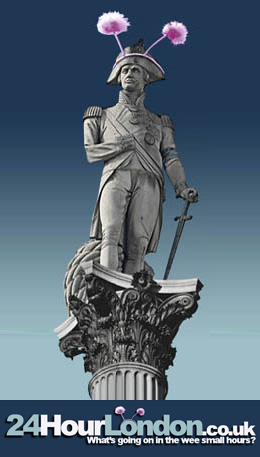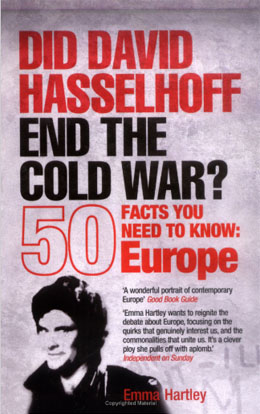I met him at the BBC folk awards back in February, for which he'd been invited to take part in the nomination process because of his industry connections. "But the invitation landed in my spam tray and I didn't find it until too late to take part," he says. "Shame."
He has pictures on his phone of his beautiful home in the Northamptonshire village of Braunston, a new business venture to throw himself into, in the form of a social networking platform called Pic-Nic Village, and the satisfaction of knowing that he's created something that means a great deal to a great many people. "I know at least ten marriages that have happened as a result of people meeting at the Big Chill," he says.
But ask him about the business of running a festival and tension doesn't so much creep into the atmosphere as land on the middle of the table we're sitting at and dance around in hobnail boots.
"There is undoubtedly money to be made on festivals. But if I'm asked, my advice is not to do it. The money I eventually made on the deal reflected 15 years of very hard work. But it nearly cost me my home and did cost me my marriage.
"It started out as Katrina and I putting stuff on at Union Chapel in Islington: indoor, all-day festivals. This was right after the birth of the internet, and I believe we were the first club to have our own web forum. Then the reasoning was that if we could make a success of it indoors, we could do the same thing outdoors.
"But it took some years to get to the point where any money was being made and we were, frankly, completely unprepared for what it would cost to put on an event. It was the fact that it became a community that kept us going.
"There are huge fixed costs and what we found was that there were also rising costs attached to anything health and safety related - every year the bill got bigger - as well as for policing. And each year there were more and more festivals, so it got harder to get hold of the things you need: loos, fencing.
"Now there are so many festivals that it's really an artists' market. When we started out artists were approaching us but these days the artists are in demand and as a result their billing is going up and up."
His face clouds as he remembers the Big Chill's second year, in which the festival took place in Norfolk at a time when media stories about the terrifying "rave" phenomenon were all the rage. "There was a huge headline on the front of the local paper asking 'Is this festival a rave?' And they kept referring to us as a 'hippy rave', which was supposed to be two bad things rolled into one.
"There was huge local hostility and at the end of it Katrina and I had to borrow money for petrol to leave the site. We couldn't afford to buy nappies for the baby, so had to wrap it in a towel. Then when we got home it was to a winter during which we had no income whatsoever and to top it all there were some prosecutions arising from conditions attached to the licence. It had been issued by South Norfolk district council at the 11th hour, so we'd had no chance to appeal.
"These were the pressures on Katrina and I. We were living in a tiny flat in north London and The Big Chill just took over our lives. It was like the third baby. After Norfolk there was just so much pressure..." He shakes his head. On the day I see him he's just come from visiting Katrina, so I guess time and events have healed many of the old wounds. But it's the gap between the original ideal and what unfolded that seems to have taken the greatest toll.
"I believe massively in the power of festivals to unite people," he explains. "I realised that that people could come to them in so many different ways and find a relevance for them in their lives. They have a terrific potential to unite people."
And his view has been vindicated to the point where the same media outlets that once ran the stories about the terrifying scourge of rave culture now send correspondents to Glastonbury, which has become so embedded in the culture that it's hard to imagine British summertime without it.
Whereas the free festival movement during the 80s was associated with travellers, Thatcherite criminal justice bills and illegal campsites, its legacy is something that has become absolutely mainstream. Festivals are, for most people, just brilliant fun in an environment where its possible to forget bourgeoise reality for a few days. Pete and the others who started these festivals were really peddling a dream.
"The Big Chill was never a free festival, though," he says. "The first year it was £25 a ticket, but no one working there got paid. The maxim is that it takes three years to get a festival to a point where it breaks even. I guess these days you'd expect to break even on ticket sales and then make your profit from the bar. Some festivals choose to franchise out the bar to generate themselves a guaranteed income. But we were always keen to keep it under our own auspices. Running a bar has its own complications."
In addition to his social networking project, Lawrence is also working on his autobiography, which will include the story of the record label he founded, Cooking Vinyl. He tells me a tale about discovering Michelle Shocked around a campfire at a festival in Texas while ligging around the festival scene. (Ligging. There's a word you don't hear much any more... Like "hitching".)
He professes a fondness for folk, roots and acoustic music, which he says he always mixed in with the electronica that was more tribally acceptable at festivals in the late 80s and early 90s. "But Festival Republic aren't involved in folk festivals at the moment. I get the impression that they're only interested in very large events. It's all about the potential return. If a folk festival started growing fast to 30,000 plus I'm sure they would take interest."
But would this be a good thing? By his own admission, Lawrence wasn't interested in attracting sponsorship for The Big Chill until other festival directors came on board and forced the issue. His equivocal experiences haven't put him off completely though, and he mentioned several small events he's intending to enjoy this summer without the hassle of thinking of them as businesses. "I'm really looking forward to something called Chilled Cider at The Square and Compass in Worth Matravers, Dorset, overlooking the English channel. It's the best pub in the world," he says. "Just a hatch in the wall really."
* If you'd like to receive posts from this blog directly into your Facebook newsfeed, you could *like* its Facebook page and then use the drop-down menu to indicate that it's one of your "interests". This will enhance the possibility that you'll get them. You could also follow me on Twitter @emma1hartley








